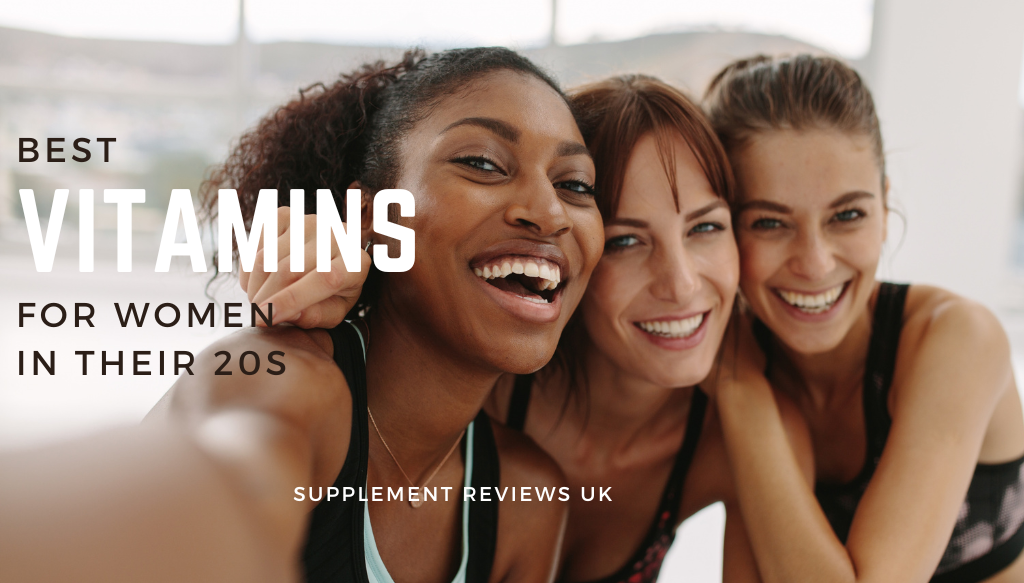
Here’s why we need to talk more about vitamins for young women… UK young women in their 20s are more likely to suffer from low levels of more than 10 essential vitamins and nutrients compared to men and older women. [1]
Worryingly, studies also show that 90% of young women in the UK (aged 18-38) who are trying to conceive lack the vitamins they need for a healthy pregnancy. [2]
Disturbing, isn’t it?
It’s easy to feel invulnerable when you’re young, but both of these facts show how vital it is to know what vitamins young women in their 20s need.
After all, this age brings big changes in health and lifestyle as women seek to establish a career, have children, enjoy life and travel.
We’re going to look at the main vitamins young women need for good health. We’ll cover how vitamins help keep you well and what’s special about this age. By the end, you’ll know how to feed your body the right nutrients.
 Key Takeaways
Key Takeaways
- Young UK women in their 20s are particularly vulnerable to nutrient shortfalls
- Vitamins play a crucial role in maintaining overall health and well-being for women in their 20s
- Specific vitamin needs for this age group include supporting reproductive health, bone density, and energy levels
- Understanding the dietary sources and recommended daily allowances of essential vitamins is vital
- Achieving a balanced vitamin intake can help prevent deficiencies and reduce the risks of vitamin overdose
Importance of Vitamins for Young Women
Vitamins are key nutrients that help keep young women healthy and well. They support many body functions, like metabolism and immune health. It’s vital to get enough vitamins in your 20s, a time of big hormonal changes and health needs.
Role of Vitamins in Overall Health
Vitamins bring many benefits for young women. They help control hormones, increase energy, and keep skin and hair healthy. They also boost the immune system, lowering the chance of getting sick. Plus, vitamins like vitamin B and vitamin D are key for good mental health and thinking skills.
Specific Needs for Women in their 20s
- Need more iron to make up for blood lost during periods and keep red blood cells healthy.
- Must have more folic acid for cell growth and to prevent birth defects if pregnant.
- Important to get enough calcium and vitamin D for strong bones during these years.
- Need antioxidants, like vitamin C and vitamin E, to fight stress and environmental harm.
- If trying for a baby, should consider supplementing unless following a ‘really high-quality diet’, according to Prof Keith Godfrey, an epidemiologist at the University of Southampton. Particular recommendations include taking a multivitamin, folic acid and vitamin D. [3]
 Key Vitamins for Young Women in their 20s
Key Vitamins for Young Women in their 20s
Women in their 20s need to pay close attention to their vitamin intake. These nutrients are key for good health and meet the unique needs of this life stage.
Let’s look at the main important vitamins for young women in their 20s:
- Vitamin A – This antioxidant vitamin is vital for immune function, skin health, and vision maintenance. High amounts of vitamin A can harm an unborn baby so talk to your doctor first if you’re pregnant.
- Vitamin C – Acts as an antioxidant and immune booster, helping to protect cells, helps with collagen production and iron absorption.
- Vitamin D – Essential for bone health, vitamin D plays a crucial role in calcium absorption and supporting the immune system. Studies show that 20% of people in the UK are deficient in vitamin D, while as many as 60% have insufficient vitamin D levels. [4] While you can gain low amounts of vitamin D from a limited amount of foods, the majority is made in the body after exposure to sunlight. You’re particularly at risk of deficiency if you’re vegan or vegetarian, darker skinned, pregnant or breastfeeding, or overweight. Or living in the UK with little sun for half of the year! That’s why the NHS recommends that everyone supplement with vitamin D during the autumn and winter months. See which vitamin D supplement we recommend here
- Vitamin E – As a powerful antioxidant, vitamin E helps protect cells from damage and supports cardiovascular health.
- B-Complex Vitamins – This group of vitamins, including B6, B12, and folate, are important for energy production, red blood cell formation, improving mood and enhancing neurological function. Statistics show that young women of childbearing age, especially those aged 16-24, have an increased risk of B9 deficiency (folic acid), while vegetarians and vegans have the highest rates of B12 deficiency. [5] Anyone leading an active lifestyle will need higher levels of B vitamins. We can highly recommend this standalone vitamin B complex
Side Note: The Importance of Minerals
Young women should also consider minerals like iron, calcium, and magnesium. These minerals help with energy metabolism and keeping bones strong.
IRON
Low levels of iron are common, particularly if you have heavy periods or are pregnant. Over a quarter of women are believed to be getting less iron than their bodies need.
If you’re feeling tired and lethargic, you may be low in iron. An iron supplement can often rectify the problem quicker than diet alone. If you do want to take a supplement, avoid ones with excessively high levels of iron as this can cause its own problems. Please consult with your doctor before taking any supplements, especially if you’re pregnant. We recommend this standalone iron supplement
CALCIUM
Calcium is particularly important in your 20s as they are your peak bone-building years – bone mass peaks in the late 20s. Those who develop strong bone mass in their earlier years are less likely to suffer from osteoporosis and bone fractures later in life. Calcium can be found in dairy, soy and certain vegetables (spinach, kale, among others). If you worry that you’re not getting enough, a calcium supplement can help to increase your levels. We recommend this standalone calcium supplement
Ensuring a balanced intake of these key vitamins and minerals can significantly benefit women in their 20s, supporting their overall health and wellbeing.
Vitamins: Sources and Recommended Intake
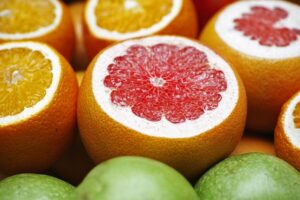 We’ll look at the best foods for these vitamins and how much you should eat. This will help you get what you need for good health.
We’ll look at the best foods for these vitamins and how much you should eat. This will help you get what you need for good health.
Dietary Sources of Essential Vitamins
Eating a varied, rich diet is key to getting your vitamins. Here are some top foods for essential vitamins:
- Vitamin A: Carrots, sweet potatoes, leafy greens, dairy products
- Vitamin C: Oranges, grapefruits, broccoli, bell peppers, strawberries
- Vitamin D: Fatty fish, egg yolks, fortified dairy products
- Vitamin E: Nuts, seeds, plant oils, leafy greens
- B Vitamins: Whole grains, lean proteins, legumes, leafy greens
 Recommended Daily Amounts of Vitamins for Young Women
Recommended Daily Amounts of Vitamins for Young Women
The amount of vitamins you need changes based on your age, gender, and health. Here’s what women in their 20s should aim for daily:
- Vitamin A: 600 micrograms (mcg)
- Vitamin C: 40 milligrams (mg)
- Vitamin D: 400 international units (IU) or 10 micrograms (mcg)
- Vitamin E: 3 mg
- B Vitamins: Varies depending on the exact B vitamin. Discover the recommendations in full here
Eating a balanced diet full of vitamin sources helps you get the right amount of vitamin dosage. Remember to watch out for vitamin interactions. If you’re worried about your vitamins, talk to your doctor.
Maintaining Vitamin Balance
Getting the right balance of vitamins is key for young women’s health. We’ll look at signs of vitamin shortages, the dangers of too many vitamins, and how to keep a healthy balance. This includes proper supplements and food choices.
Signs of Vitamin Deficiency
Vitamin shortages can show in many ways, like feeling tired, a weak immune system, or skin problems. Some common signs of vitamin deficiency are:
- Persistent tiredness and lack of energy
- Frequent infections or slow healing of wounds
- Dry, dull or blemished skin
- Hair loss or brittle nails
- Muscle cramps or bone pain
Risks of Vitamin Overdose
It’s vital to get enough vitamins, but too many can be harmful. Taking too much of vitamins like A, D, E, and K can cause health issues, such as:
- Nausea and vomiting
- Liver damage
- Kidney problems
- Bone loss
- Vitamin interactions that can affect how other nutrients work.
It’s important to eat well and talk to a doctor before taking any vitamins and if you wish to supplement, to avoid megadoses of vitamin tablets. More isn’t necessarily better. Choose a supplement that offers a safe amount of vitamin. This helps avoid these problems.
 The Benefits of Supplementation
The Benefits of Supplementation
You’ll hear many people tell you that you should be able to gain enough of the important nutrients from diet alone (unless you’re vegan or vegetarian). But the truth is – most people don’t. Even the experts admit that supplementation is often necessary, especially when faced with the knowledge that women in their 20s struggle to gain enough of the essential vitamins and nutrients they need. Likewise, the NHS recommends that everyone supplement for vitamin D.
The UK National Diet and Nutrition Survey highlights that young women lack adequate amounts of 11 key nutrients – vitamin A, riboflavin, folic acid, calcium, magnesium, potassium, iodine, copper, selenium, vitamins B6 and B12.
Faced with that knowledge, it can be a bit overwhelming to know which type of supplement you should take to combat any deficiency. If you suspect you’re lacking more than one particular vitamin or mineral, we’d recommend taking an all-round multivitamin designed for women. A good multivitamin should plug any nutritional gaps and provide a decent amount of your daily recommended nutrients. It should also be clean, ethically made and (for the vegans among us) vegan and vegetarian-friendly.
OUR RECOMMENDATION: For all those reasons we recommend Performance Lab NutriGenesis Multivitamin. Read our review here
Conclusion
For women in their 20s, keeping vitamin levels right is key. Knowing the important vitamins, where to find them, and how much you need helps. A balanced diet and supplements can make sure you get all the nutrients your body wants.
Vitamins are crucial for many body functions, like keeping the immune system strong and ensuring healthy skin and hair. For women in their 20s, getting enough vitamins like C, D, and B can boost health and energy.
Whether you get your vitamins from food or supplements, finding the right balance is important. Being informed and making smart choices lets us take charge of our health. This sets us up for a bright and fulfilling life ahead.
- https://www.ncbi.nlm.nih.gov/pmc/articles/PMC6060686/
- https://www.theguardian.com/science/2023/dec/05/trial-women-trying-for-baby-lack-essential-nutrients
- https://www.theguardian.com/science/2023/dec/05/trial-women-trying-for-baby-lack-essential-nutrients
- https://vitall.co.uk/health-tests-blog/statistics-vitamin-mineral-deficiency-uk
- https://vitall.co.uk/health-tests-blog/statistics-vitamin-mineral-deficiency-uk
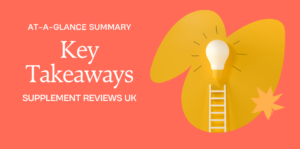 Key Takeaways
Key Takeaways Key Vitamins for Young Women in their 20s
Key Vitamins for Young Women in their 20s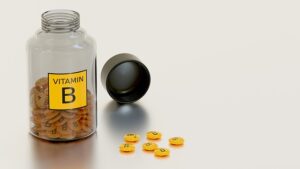 Recommended Daily Amounts of Vitamins for Young Women
Recommended Daily Amounts of Vitamins for Young Women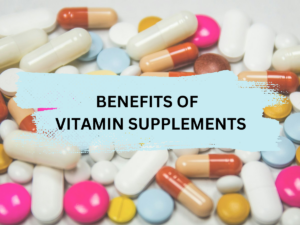 The Benefits of Supplementation
The Benefits of Supplementation